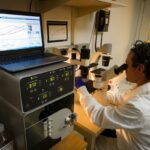Trauma and DNA – two seemingly disparate concepts, yet intricately intertwined in the realm of human health and behavior. The study of how trauma can alter DNA, specifically through epigenetic changes, is a rapidly evolving field. Understanding this relationship not only sheds light on the profound impact of traumatic experiences on our physical and mental health but also opens new avenues for therapeutic interventions.
Understanding Trauma
Trauma, in its broadest sense, refers to a deeply distressing or disturbing experience. It can be categorized into various types, including physical trauma, emotional trauma, and psychological trauma. Physical trauma can stem from accidents, injuries, or illnesses, while emotional and psychological trauma often arise from distressing events such as abuse, neglect, or loss.
The impact of trauma extends beyond immediate physical injuries or emotional distress. It can lead to long-term health complications, including mental health disorders like post-traumatic stress disorder (PTSD), depression, and anxiety. Moreover, emerging research suggests that trauma can also leave a lasting imprint on our DNA, thereby influencing our health and that of future generations.
Basic Genetics and DNA
To understand how trauma can alter DNA, we first need to grasp the basics of genetics. DNA, or deoxyribonucleic acid, is the molecular blueprint of life. It carries the instructions for the growth, development, functioning, and reproduction of all known organisms.
Genes, the functional units of DNA, work by coding for proteins – the workhorses of the cell. However, not all genes are active at all times. The expression of genes, i.e., when and how they are turned on or off, is a tightly regulated process that determines our traits and characteristics.
Sometimes, changes or mutations can occur in the DNA sequence, leading to altered gene function. These genetic mutations can result in various health conditions, depending on the affected gene and the nature of the mutation.
The Concept of Epigenetics
Epigenetics is a field of study that explores changes in gene expression that do not involve alterations to the underlying DNA sequence. In other words, while genetics deals with the hardware of inheritance, epigenetics is concerned with the software – the complex set of instructions that govern gene activity.
Epigenetic changes can be brought about by various factors, including environmental influences, lifestyle choices, and yes, trauma. These changes can alter gene expression, influencing our health and behavior, and intriguingly, some of these changes may even be passed on to future generations.
The Link Between Trauma and Epigenetic Changes
So, how exactly can trauma leave a chemical mark on our genes? The answer lies in the process of epigenetic modification. When we experience trauma, it triggers a cascade of biochemical reactions in our body. These reactions can lead to the addition or removal of chemical groups on our DNA, specifically on the histone proteins around which DNA is wound. This process, known as DNA methylation or demethylation, can alter gene expression.
Numerous studies support the link between trauma and epigenetic changes. For instance, research on Holocaust survivors and their offspring has shown significant epigenetic alterations associated with trauma exposure.
The Implications of Trauma-Induced Epigenetic Changes
The potential health risks of trauma-induced epigenetic changes are vast. They can influence our susceptibility to various diseases, including mental health disorders, cardiovascular disease, and even cancer. Furthermore, the possibility of these changes being passed on to future generations raises critical questions about the long-term impact of trauma.
However, the concept of epigenetic inheritance – the transmission of epigenetic changes from parents to offspring – remains a contentious issue. While some studies support this idea, others argue that most epigenetic marks are erased during the formation of sperm and egg cells.
Current Research and Studies on Trauma and Epigenetics
Despite the challenges and controversies, research in this field is burgeoning. Recent studies have unveiled key insights into the mechanisms of trauma-induced epigenetic changes and their implications for health and disease. However, much remains to be discovered. Future research directions include unraveling the precise biochemical pathways involved and exploring potential therapeutic strategies to reverse harmful epigenetic modifications.
Therapeutic Approaches to Address Trauma-Induced Epigenetic Changes
Therapeutic interventions for trauma-induced epigenetic changes are still in their infancy. However, promising approaches include psychotherapy, cognitive-behavioral therapy, pharmacological interventions, and lifestyle changes. Mind-body therapies such as mindfulness and yoga, which have been shown to influence gene expression, may also hold potential.
Closing Notes
Closing Notes, the study of how trauma can alter DNA through epigenetic changes offers fascinating insights into the intricate interplay between our experiences and our genes. While much remains to be discovered, the potential of epigenetics in understanding and treating trauma is immense. As we continue to unravel the mysteries of the human genome, we may find that our DNA is not just a blueprint, but a dynamic narrative of our life experiences.
Frequently Asked Questions
What is trauma?
Trauma refers to a deeply distressing or disturbing experience. It can be physical, emotional, or psychological in nature.
What is epigenetics?
Epigenetics is the study of changes in gene expression that do not involve alterations to the underlying DNA sequence.
How can trauma alter DNA?
Trauma can lead to epigenetic changes, such as DNA methylation or demethylation, which can alter gene expression.
What are the potential health risks of trauma-induced epigenetic changes?
These changes can influence susceptibility to various diseases, including mental health disorders, cardiovascular disease, and cancer.
Can trauma-induced epigenetic changes be passed on to future generations?
The concept of epigenetic inheritance remains a contentious issue. While some studies support this idea, others argue that most epigenetic marks are erased during the formation of sperm and egg cells.
What are some therapeutic approaches to address trauma-induced epigenetic changes?
Potential approaches include psychotherapy, cognitive-behavioral therapy, pharmacological interventions, and lifestyle changes. Mind-body therapies such as mindfulness and yoga may also hold potential.
References:
- Bowers, M. E., & Yehuda, R. (2016). Intergenerational Transmission of Stress in Humans. Neuropsychopharmacology, 41(1), 232–244. https://doi.org/10.1038/npp.2015.247
- Yehuda, R., Daskalakis, N. P., Bierer, L. M., Bader, H. N., Klengel, T., Holsboer, F., & Binder, E. B. (2016). Holocaust Exposure Induced Intergenerational Effects on FKBP5 Methylation. Biological Psychiatry, 80(5), 372–380. https://doi.org/10.1016/j.biopsych.2015.08.005
- Weaver, I. C. G., Cervoni, N., Champagne, F. A., D’Alessio, A. C., Sharma, S., Seckl, J. R., Dymov, S., Szyf, M., & Meaney, M. J. (2004). Epigenetic programming by maternal behavior. Nature Neuroscience, 7(8), 847–854. https://doi.org/10.1038/nn1276
- Reuben, A., Moffitt, T. E., Caspi, A., Belsky, D. W., Harrington, H., Schroeder, F., Hogan, S., Ramrakha, S., Poulton, R., & Danese, A. (2016). Lest we forget: comparing retrospective and prospective assessments of adverse childhood experiences in the prediction of adult health. Journal of Child Psychology and Psychiatry, 57(10), 1103–1112. https://doi.org/10.1111/jcpp.12621
- Duman, E. A., Canli, T. (2015). Influence of life stress, 5-HTTLPR genotype, and SLC6A4 methylation on gene expression and stress response in healthy Caucasian males. Biology of Mood & Anxiety Disorders, 5, 2. https://doi.org/10.1186/s13587-015-0019-4
- Epel, E. S., Puterman, E., Lin, J., Blackburn, E. H., Lazaro, A., & Mendes, W. B. (2013). Wandering Minds and Aging Cells. Clinical Psychological Science, 1(1), 75–83. https://doi.org/10.1177/2167702612460234








